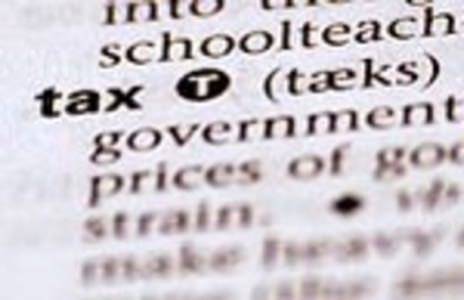The United States Congress, which has been debating the issue of carried interest and capital gains tax for quite some time now, may be inching towards a solution as a vote is expected on the issue some time this week. As we’ve discusses as recently as last week, Congress, in an attempt to raise money, is considering hiking taxes on capital gains – the income a VC might make on a long-term investment with a startup. This week, as Congress nears a resolution, VCs have begun raising their voices against these tax increases.

As the National Venture Capital Association pointed out Wednesday, the venture capital community is largely united against capital gains tax hikes. Tuesday, Foundry Group’s Jason Mendelson reiterated the negative impacts of the proposed legislation and provided a first-person point-of-view on the issue. He blames the current political climate – one where cooperation is at its lowest – for creating a “boy who cried wolf” scenario for topics of true importance which could have measurable effects on an industry.
“There is no doubt in my mind that this massive alteration in how we tax the work of a group of people who nurture and fund innovation in the US will radically change the long term trajectory of the our country’s innovation economy.”
– Seth Levine
When a new tax is proposed, he says, some group always stands up and claims it will destroy this or that. Mendelson argues that venture capital and innovation are truly in danger from this legislation, but they are having a hard time being taken seriously. What he says is most direly at stake in this legislation is what the government has been striving for since the economic meltdown – job creation.
“One thing that is apparent is that VCs partner with great entrepreneurs to create jobs,” writes Mendelson. “In fact, we risk our personal wealth and reputations to invest money in highly risky startups that take 5 to 10 years to mature in these efforts. Most of our investments do not work out as we plan. The ones that do, create sustainable, long-lasting jobs that benefit the job market today and for future generations.”
It is because of these “highly risky” investments that he and other VCs believe the current incentives are necessary to sustain innovation and job creation. If VCs are held accountable for higher tax rates on their investment returns, they will be much more selective of their investments, and total dollars invested will likely take a significant dive.
Seth Levine, who like Mendelson is a partner at Foundry Group, agrees that a capital gains tax increase would hinder innovation. His justification for this argument stems from the fact that other tax incentives have directly influenced taxpayer behavior. Give people tax breaks on buying a house, and more people buy houses, he says. Taking away these incentives for VCs will have a direct negative impact on their behavior, says Levine.

“There is no doubt in my mind that this massive alteration in how we tax the work of a group of people who nurture and fund innovation in the US will radically change the long term trajectory of the our country’s innovation economy,” he says.
But not all VCs are against the legislation. Chris Dixon, co-founder of Hunch and a prominent angel investor, tweeted recently that he hopes the tax increase passes. As he sees it, it’s simply a “matter of basic fairness.” Dixon and other angels recently wiped the sweat from their brows when legislation that would have placed strict regulations on angels was either struck down or changed in their favor. Now he believes it is only fair that VCs pay the same income tax as everyday citizens.
Fred Wilson of Union Square Ventures, like Dixon, also agrees that VCs should pay capital gains taxes as if they are normal income as expressed in a blog from 2007.
“If congress is successful in taxing carried interest as ordinary income, it will massively increase the amount of taxes I pay. So be it,” wrote Wilson. “Someone has to pay the taxes to keep our troops equipped, our borders secured, our schools modernized, and our children healthy. It might as well be me and my wife.”
Regardless of your opinion on the capital gains issue, these VC perspectives are certainly worth exploring. A decision is expected on the issue sometime this week, and early predictions do not look good for VCs. Increased taxes could directly affect a startup’s ability to secure funding, so keep an eye out for news about the legislation later this week.
Photo by Flickr users Alan Cleaver and Kevin Dooley.





















